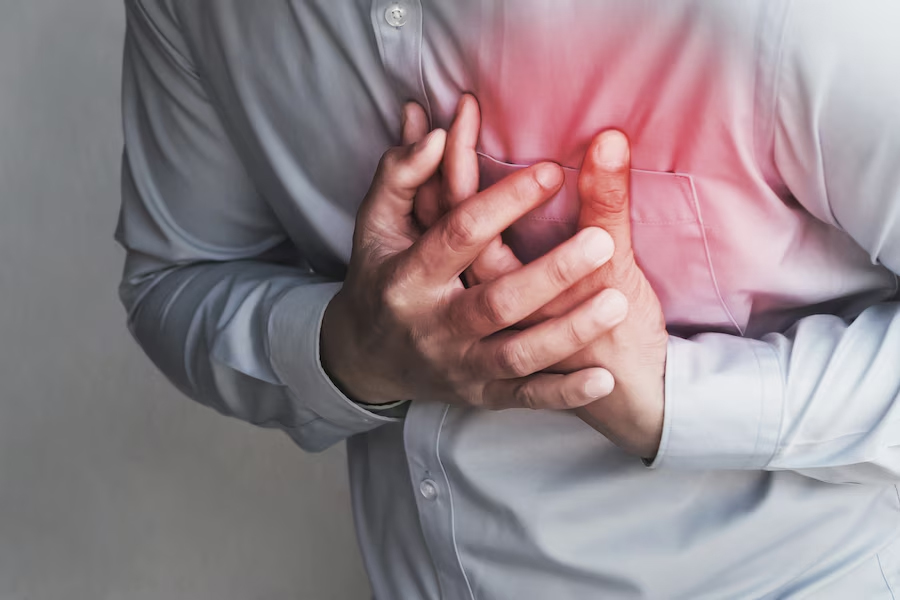
Did you ever notice how your body responds to stress? Stress is a natural human reaction to demanding or dangerous circumstances. It can manifest in various ways, including physical symptoms like headaches, fatigue, muscle tension, and digestive problems. It can have serious effects on your physical health when it becomes chronic. Understanding the signs of excessive stress is crucial for managing and mitigating its impact. We spoke to Dr Vipul Gupta, Chief – NeuroInterventional Surgery and Co-Chief Stroke Unit, Artemis Hospital, Gurugram, who listed the physical symptoms of chronic stress.
Table of Content:-
Physical Symptoms Of Stress
According to the Mental Health Foundation, stress can be described as a sensation of being overwhelmed or unable to manage mental or emotional strain, which can lead to both mental and physical effects.
Here are ten physical symptoms that may indicate you are experiencing too much stress:

1. Headaches
This is one of the most common physical symptoms of stress is headaches. A 2015 study found that higher stress intensity was linked to an increase in the number of headache days experienced each month.
"Stress-related headaches can vary from mild tension headaches to intense migraines. Muscle strain in the neck, shoulders, and scalp is frequently the cause of these headaches. They may be triggered by the body's fight-or-flight response, which leads to the release of stress hormones like adrenaline and cortisol. This release can increase muscle tension and sensitivity, contributing to the development of these headaches", said Dr Gupta.
2. Fatigue
Chronic stress can lead to persistent fatigue, making you feel exhausted even after a full night's sleep. Stress affects your sleep quality, causing issues like insomnia or restless sleep. Your energy reserves are depleted by the continual state of attention, making you feel exhausted and less able to handle everyday duties. A recent study by BMC Psychiatry involving over 7,000 employed individuals revealed a 'significant association' between fatigue and work-related stress.
Also Read: From Heat Stress To Poor Sleep: Expert Lists Things To Avoid In Summer To Maintain Hormonal Balance
3. Digestive Problems

You can also experience digestive problems when the stress level increases in your body. Symptoms may include stomachaches, bloating, constipation, diarrhoea, and Irritable Bowel Syndrome (IBS). Stress can alter the gut microbiota and affect digestion, leading to discomfort and pain.
A 2017 study also emphasises the direct link between stress and IBS symptoms, stating that stress plays a major role in the onset and exacerbation of digestive issues.
4. Muscle Tension and Pain
Dr Gupta said, "The body's protective response to stress is muscle tension, which can lead to pain and discomfort in areas like the neck, shoulders, and back. Chronic stress maintains muscles in a constant state of preparedness, potentially worsening existing muscle-related problems and contributing to chronic pain conditions."
5. Chest Pain and Rapid Heartbeat

Stress can cause chest pain and a rapid heartbeat, often mimicking the symptoms of a heart attack. This is due to the release of stress hormones that increase heart rate and blood pressure. While these symptoms are usually harmless, they can be frightening and may require medical attention to rule out other conditions.
6. Weakened Immune System
Did you know prolonged stress can hamper your immune system, eventually making you more prone to infections and illnesses? Stress hormones like cortisol can suppress the effectiveness of the immune response, reducing your body's ability to fight off viruses and bacteria.
Also Read: MentalHealthMatters: Can Food Reduce Stress? Know In Detail How It Works
7. Skin Problems
You may have noticed acne breakouts when dealing with stress. According to Clinical, Cosmetic and Investigational Dermatology, a link between higher stress levels and more frequent acne breakouts was detected. But did you know stress can manifest in various skin issues, including acne, eczema, psoriasis, and hives? The body's inflammatory response to stress can cause flare-ups of these conditions. Also, stress can lead to habits like scratching or rubbing the skin, exacerbating existing problems.
8. Weight Fluctuations
Remember that stress can have a big impact on your appetite, potentially causing you to gain or lose weight. "Emotional eating is a coping mechanism for certain individuals, which involves overindulging in high-calorie, sweet meals that can contribute to weight gain. However, stress can also cause some people to lose their appetite, which can lead to weight loss. Also, the stress hormone cortisol can contribute to fat storage, especially around the belly area", added Dr Gupta.
9. Sleep Disturbances
Stress often interferes with your ability to sleep, causing issues, such as insomnia, difficulty falling or staying asleep, and restless sleep. The stress hormone cortisol can disrupt your sleep cycle, making it hard for you to relax and get a good night's rest.
10. Changes in Libido
Stress can significantly impact your sexual health, leading to a decreased libido. The physical and emotional toll of stress can reduce your interest in sex and intimacy. A 2021 study frontiers in Endocrinology examining the impact of the COVID-19 pandemic on women's reproductive health found that 45% of the more than 1,000 women surveyed reported a decrease in libido due to stress.
[Disclaimer: This article contains information provided by an expert and is for informational purposes only. Hence, we advise you to consult your expert if you are dealing with any mental health issues to get the necessary treatment.]
Also watch this video
How we keep this article up to date:
We work with experts and keep a close eye on the latest in health and wellness. Whenever there is a new research or helpful information, we update our articles with accurate and useful advice.
Current Version